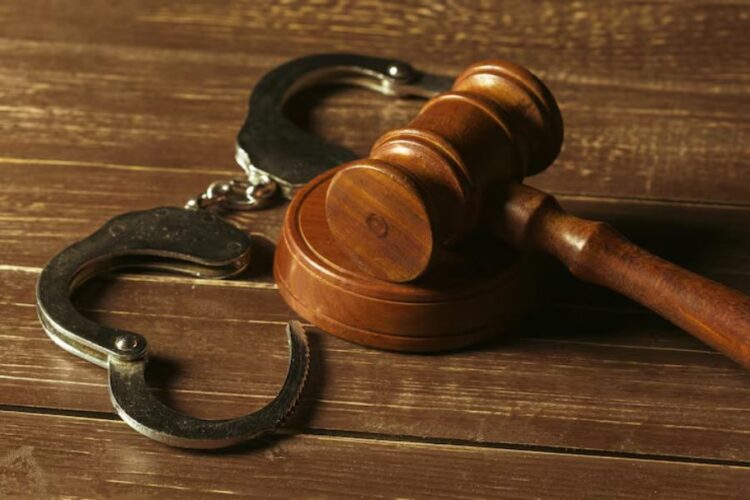Being wrongfully convicted is one of the gravest injustices any person could suffer. Imagine spending years, decades, or even the remainder of your life behind bars for a crime you did not commit. This is where criminal lawyers come in. They will serve as your advocates in court. They protect your human rights and ensure that justice is served.
Keep reading, as this article will discuss how criminal defense attorneys work to help their clients avoid the nightmare of a wrongful conviction.
Protecting Your Right to a Fair Trial
Everyone is entitled to their day in court. This means that you have the right to present your side of the story before a judge or jury. This is an essential component of due process, the constitutional guarantee that fair procedures must be followed before any person can be deprived of life, liberty, or property.
However, a fair trial involves more than simply being heard in court. It also includes having an impartial judge or jury. So, in the event that potential jury members show bias against your race or religion, your criminal defense lawyer would challenge the jury selection. The same approach applies if the judge assigned to the case is perceived to be prejudiced against you. In this situation, your attorney can request another judge to try the case.
The presumption of innocence or the principle of “innocent until proven guilty” is also crucial in the right to a fair trial. This means your defense attorney will protect you from detention, coercion, public shaming (e.g., perp walks), or any form of pre-trial punishment.
All these show that your criminal defense lawyer begins protecting your interests well before you ever stand before a judge and jury.
Creating a Strong Defense
Building a solid defense is essential to prevent an unjust conviction. Your criminal lawyer will help investigate beyond what the prosecution presents to uncover new evidence that could favor your case.
For instance, they will look for witnesses who can support your version of events and encourage them to testify in court. Your attorney may also come up with other plausible reconstructions of the incident to challenge the prosecution’s allegations and create reasonable doubt in the minds of the jurors.
However, building a strong defense takes real expertise. Your lawyer needs to know criminal law inside and out, particularly in the specific area of your charges. Years of courtroom experience matter just as much. After all, there’s no substitute for knowing how things actually work. Your attorney also needs to understand your state’s laws, since what’s legal in one place might not be in another.
For example, if you’re facing domestic violence charges in Queensland, you’ll want to find and work with criminal lawyers in Brisbane who are well-versed in the state’s violent crime laws. They understand the complexities and nuances of applicable laws, and they’ll use every bit of that knowledge to protect you from being convicted of something you didn’t do.
Challenging Unreliable Evidence
Criminal lawyers scrutinize all evidence, including police investigation reports, eyewitness accounts, video surveillance, and forensic evidence like DNA and fingerprints.
For example, if the eyewitness was standing across the street from where the crime was committed, could they confidently identify the perpetrator from the police lineup? Did the surveillance footage clearly capture the culprit’s face or any distinctive features? And what if the fingerprints recovered from the crime scene were smudged and only partial?
Even forensic evidence can be unreliable if it wasn’t collected, handled, or analyzed according to proper procedures. For instance, if the DNA was collected by someone with no forensic training, it can easily become contaminated. This could implicate the wrong person for the crime. In such situations, your lawyer would argue that the evidence is tainted and inadmissible in court.
In a criminal case, the evidence required is the highest standard: beyond a reasonable doubt. So, if there’s even the slightest weakness or flaw in the evidence presented by the prosecution, your defense lawyer will challenge it.
Fighting Against Systemic Bias
Individual bias, such as a juror or judge’s personal prejudice against the accused, is already concerning. But systemic bias poses an even greater threat. This refers to prejudice that has become deeply embedded within the justice system itself.
According to a 2024 study titled “Bias in the Criminal Legal System,” Black and Latin defendants are more likely to be assigned higher bail amounts or held without bail compared to white defendants. They’re also 1.75 times more likely to be charged by prosecutors with serious offenses that require jail time. These minority defendants also receive sentences that are 19% longer than their white counterparts for the same crimes.
Criminal defense attorneys are aware of such biases, and this drives them to fight harder for what’s right. They make sure that the charges stick to the actual facts of what happened, not assumptions or stereotypes. They also ensure that bail amounts reflect the nature of those charges. They proactively call out bias or prejudice at every stage of the criminal legal process to prevent wrongful convictions or other unjust outcomes.
Pursuing Appeals and Post-Conviction Remedies
In the event that you were wrongfully convicted, your criminal attorney can file an appeal, pointing out errors made at trial. In some cases, your lawyer may also pursue a post-conviction remedy that allows the introduction of new evidence strong enough to undermine the original verdict.
For example, they may introduce additional expert testimony to challenge the state’s evidence or its interpretation. These diligent efforts may eventually overturn your conviction and lead to your complete exoneration.
Final Words
If you’re charged with a criminal offense, working with a competent and experienced defense lawyer can go a long way. They do more than argue your case in court. They stand as your shield against injustice, especially the terrible possibility of being wrongfully convicted.
Through strategies like building a solid defense, challenging unreliable evidence, and ensuring fair treatment, the right attorney can make all the difference between conviction and acquittal.










